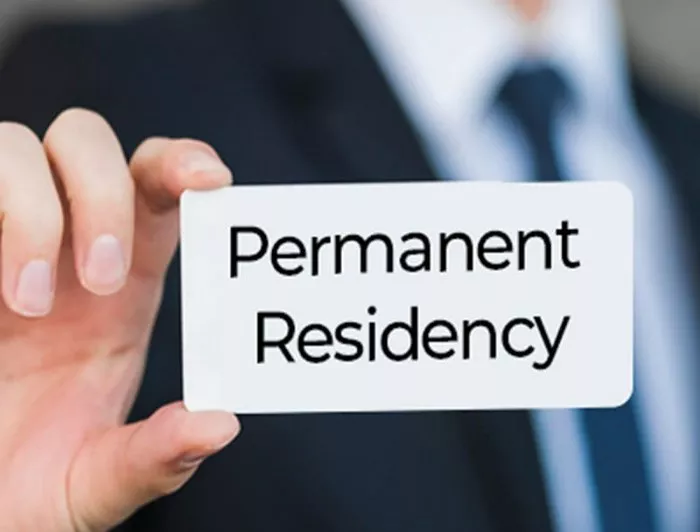In an increasingly interconnected world, the quest for permanent residency in a foreign country has become a significant aspiration for many individuals seeking better opportunities, security, or quality of life. However, navigating the complex immigration processes of different countries can be daunting. Factors such as immigration policies, economic conditions, and geopolitical stability all play a crucial role in determining the ease of obtaining permanent residency.
In this article, we will delve into an in-depth analysis of the easiest countries to obtain permanent residency in 2024. We will consider various factors such as immigration policies, application procedures, investment requirements, and overall accessibility to provide a comprehensive overview for prospective immigrants.
1. Canada: A Beacon of Immigration
For decades, Canada has been renowned for its welcoming attitude towards immigrants and its robust immigration policies designed to attract skilled individuals from around the world. The Canadian government offers several pathways to permanent residency, including the Express Entry system, Provincial Nominee Programs (PNPs), and the Family Sponsorship program.
The Express Entry system, introduced in 2015, has streamlined the immigration process for skilled workers by prioritizing candidates based on factors such as age, education, work experience, and language proficiency. Moreover, Canada’s PNPs allow provinces and territories to nominate individuals who meet specific regional labor market needs, providing additional pathways to permanent residency.
One of the most significant advantages of Canada’s immigration system is its emphasis on diversity and inclusion. The country welcomes immigrants from diverse cultural, ethnic, and religious backgrounds, fostering a vibrant and multicultural society.
2. Australia: A Land of Opportunities
Australia is another popular destination for individuals seeking permanent residency due to its strong economy, high quality of life, and favorable immigration policies. The Australian government offers various visa programs for skilled workers, students, investors, and family members.
The Skilled Independent visa (subclass 189) and the Skilled Nominated visa (subclass 190) are two primary pathways to permanent residency for skilled workers. These visas require applicants to meet certain eligibility criteria, including occupation skills assessments and English language proficiency tests.
Additionally, Australia’s Business Innovation and Investment Program (BIIP) provides opportunities for investors and entrepreneurs to obtain permanent residency by investing in Australian businesses or undertaking significant entrepreneurial activities.
3. New Zealand: A Haven for Nature Lovers
New Zealand’s stunning landscapes, high standard of living, and progressive immigration policies make it an attractive destination for individuals seeking permanent residency. The country offers various visa options for skilled workers, entrepreneurs, investors, and family members.
The Skilled Migrant Category (SMC) visa is one of the primary pathways to permanent residency for skilled workers in New Zealand. Applicants are assessed based on factors such as age, education, work experience, and English language proficiency.
Moreover, New Zealand’s Entrepreneur Work Visa and Investor Visa categories provide opportunities for individuals with entrepreneurial or investment skills to obtain permanent residency by establishing or investing in New Zealand businesses.
4. European Union: Diversity in Unity
The European Union (EU) offers a unique opportunity for individuals seeking permanent residency through its various member states’ immigration programs. While each EU country has its own immigration policies and procedures, the EU Blue Card scheme is a common pathway for skilled workers to obtain permanent residency in participating member states.
The EU Blue Card is designed to attract highly skilled non-EU nationals by granting them permission to live and work in EU countries where there is a shortage of skilled labor. After a certain period of legal residence, Blue Card holders can apply for permanent residency in their host country.
Moreover, individuals who have resided legally in an EU member state for a specified period, usually five years, may be eligible to apply for permanent residency or citizenship, depending on the country’s nationality laws.
5. United States: Land of Opportunity and Challenges
The United States has long been a sought-after destination for immigrants seeking permanent residency due to its economic opportunities, cultural diversity, and innovation-driven environment. However, the U.S. immigration system is complex and subject to frequent policy changes, making it challenging to navigate for prospective immigrants.
The most common pathway to permanent residency in the United States is through employment-based visas, such as the EB-2 and EB-3 visas for skilled workers, the EB-5 investor visa, and the Diversity Visa Lottery program. Additionally, family-based sponsorship is another avenue for obtaining permanent residency for eligible relatives of U.S. citizens or lawful permanent residents.
However, the U.S. immigration system faces significant backlogs and processing delays, particularly for certain visa categories, leading to prolonged wait times for applicants. Moreover, recent policy changes and executive orders have introduced additional restrictions and barriers for immigrants, further complicating the process of obtaining permanent residency.
Conclusion
In conclusion, the ease of obtaining permanent residency in a foreign country depends on various factors, including immigration policies, economic conditions, and geopolitical stability. While some countries, such as Canada, Australia, and New Zealand, offer relatively straightforward pathways to permanent residency for skilled workers, others, like the United States, present more significant challenges and uncertainties.
Ultimately, individuals seeking permanent residency abroad must carefully evaluate their options, consider their qualifications and preferences, and seek professional guidance to navigate the complex immigration processes effectively. By understanding the opportunities and challenges associated with different countries’ immigration systems, prospective immigrants can make informed decisions and embark on their journey towards a new life and brighter future.


